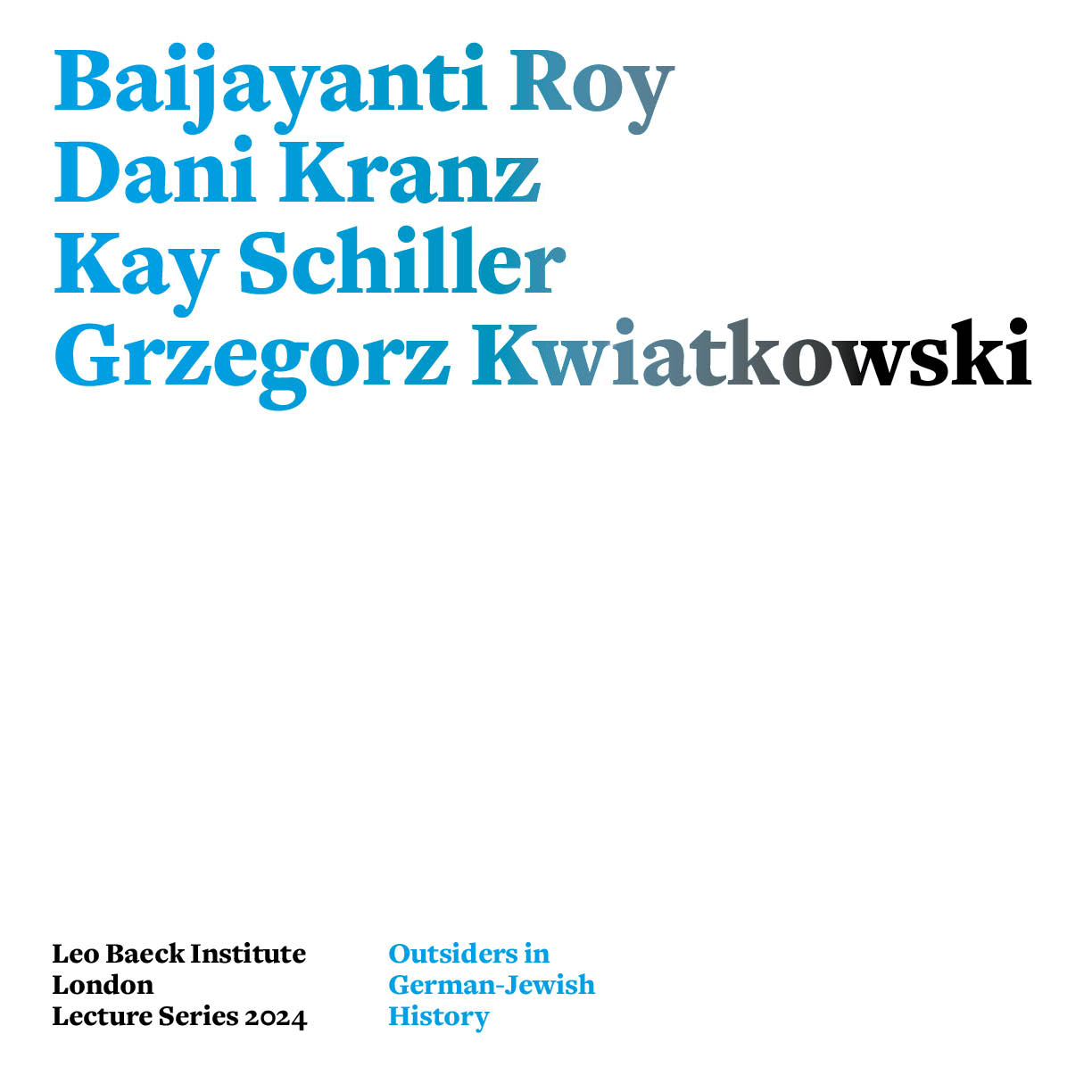
This season’s lecture series Outsiders in German-Jewish History seeks to uncover the shared experiences of individuals and communities who found themselves on the margins of society. Transcending both time and geography, talks will offer different perspectives on the resilience and tenacity of those who have grappled with the challenges of being outsiders. How have they found identity and a sense of belonging in societies that have not understood or even accepted them?
Organised by the Leo Baeck Institute London in cooperation with the German Historical Institute London.
Lectures will be held in Room G3, Ground Floor, Senate House, Malet Street, London WC1E 7HU. They will also be streamed live on Zoom. Places at Senate House are strictly limited and must be reserved by contacting the Leo Baeck Institute London at info@leobaeck.co.uk
Admission is free. Lectures will begin promptly at 6.00pm. Latecomers may not be admitted.
Zoom links will be advertised closer to the dates of individual events in our lecture announcements via email, social media and on our website. To participate online and to register your booking please follow the instructions provided in those communications.
For more information on this season’s lecture series please refer to the leaflet here.



